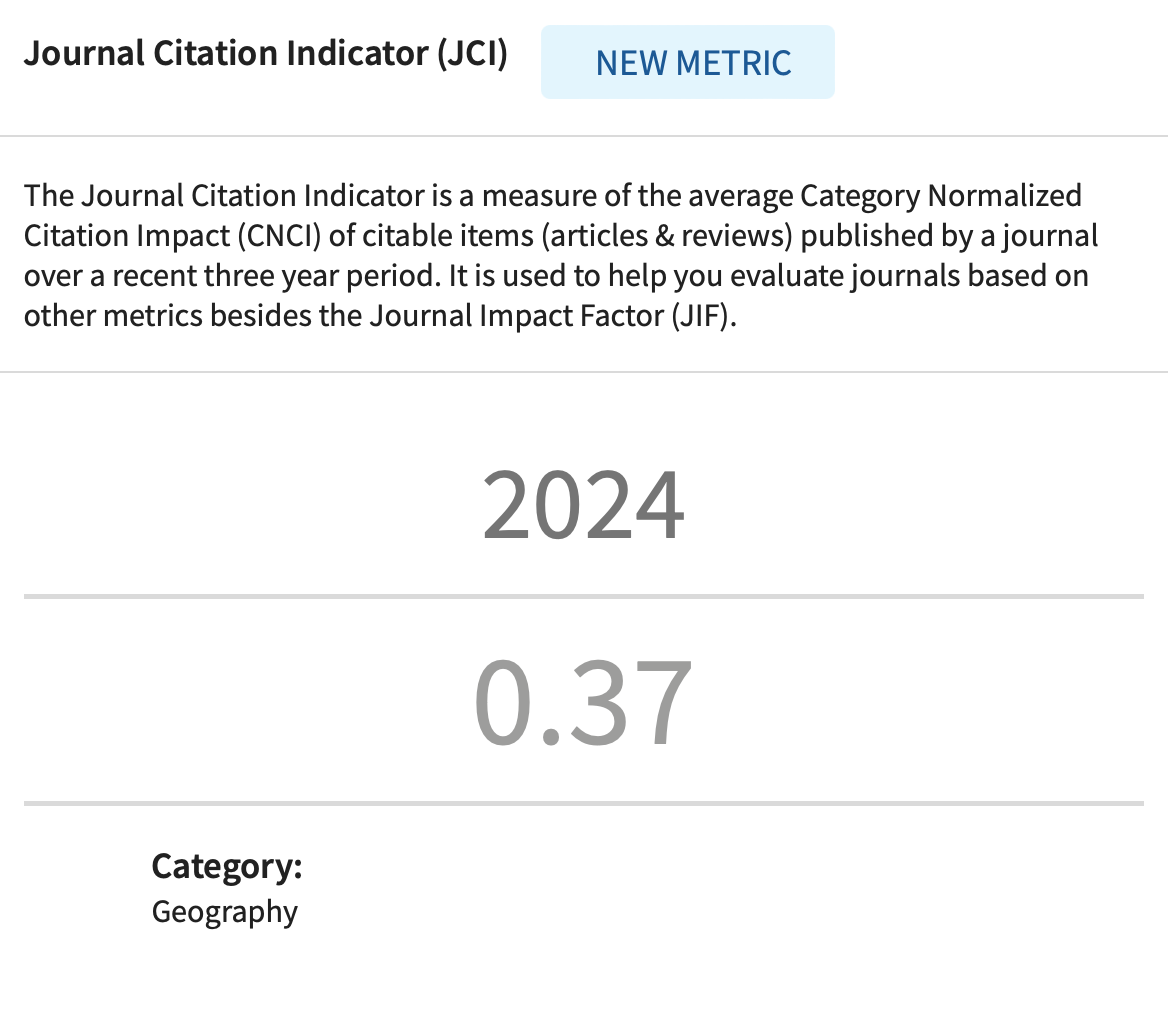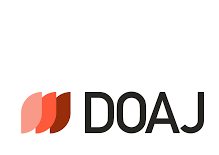THE IMPACT OF MIGRATION PROCESSES ON THE ECONOMY OF UKRAINE: TRENDS, REASONS, CONSEQUENCES
DOI:
https://doi.org/10.2298/IJGI2002171PKeywords:
migration, human capital, reasons of migration, GDP lossesAbstract
Migration is one of the main factors of globalization and it is not likely that it can be stopped as it is objective and, in most cases, is linked to the ability of the workforce to respond quickly to the changes in the society and the economy. The paper is devoted to the research of the impact of migration on the economic and social development of Ukraine's population. The methods used in the preparation of the paper are: analytical, descriptive, comparative, statistical, graphic, and critical. The paper was written on the basis of the official domestic and international data and also on the results of sociological research in which the main intentions and motives of potential migrants are investigated. On the base of the conducted research, we can conclude that, at the current stage, migration growth in Ukraine is related to structural changes in the economy and the labor market, economic growth slowdown, low wages, and quality of life compared to the nearest neighbor countries, visa liberalization with EU countries, and access to education abroad. One of the aims of the paper was to calculate the hypothetical losses of GDP from human capital migration.
Article metrics
References
Center for Economic Strategy. (2018). Skilky ukraintsiv poikhalo za kordon i shcho derzhavi z tsym robyty. Analitychna zapyska [How Many Ukrainians Have Gone Abroad and What the State Has to Do With It? Analytical Note]. Retrieved from https://ces.org.ua/wp-content/uploads/2018/04/Migration-note.pdf
Dickinson, P. (2018, February 7). Ukraine Headed for Perfect Storm of Demographic Decline [Blog post]. Retrieved from http://www.atlanticcouncil.org/blogs/ukrainealert/ukraine-headed-for-perfect-storm-of-demographic-decline
Eurostat. (2018a). Top 10 Countries Whose Citizens Received First Residence Permits in the EU-28, By Reason, 2018 (%) [Data file]. Retrieved from https://ec.europa.eu/eurostat/statistics-explained/index.php?title=File:Top_10_countries_whose_citizens_received_first_residence_permits_in_the_EU-28,_by_reason,_2018_(%25).png
Eurostat. (2018b). Residence Permits-Statistics on First Permits Issued During the Year. Retrieved from https://ec.europa.eu/eurostat/statistics-explained/index.php?title=Residence_permits_-_statistics_on_first_permits_issued_during_the_year#First_residence_permits_by_citizenship
Eurostat. (2020). Monthly Minimum Wages—Bi-Annual Data [Data set]. Retrieved from https://appsso.eurostat.ec.europa.eu/nui/show.do?dataset=earn_mw_cur&lang=en
Expat Insider. (2017). Expat Insider 2017: The World Through Expat Eyes. Retrieved from https://cms-internationsgmbh.netdna-ssl.com/cdn/file/2018-03/Expat_Insider_2017_The_InterNations_Survey.pdf
Klyuchkovska, I., Pyatkovska, O., Marusyk, Y., & Hoisan, V. (2017). Mihratsiini nastroi studentiv v umovakh vizovoi liberalizatsii (opytuvannia studentiv NU “LP” ta NTUU “KPI”) [Migration of Students in Terms of Visa Liberalization (Survey of Students of NU “LP” and NTUU “KPI”)]. Retrieved from http://miok.lviv.ua/wp-content/uploads/2017/11/ОСТАТОЧНИЙ-ЗВІТ.pdf
Libanova, E., & Poznyak, O. (2010). Naselennia Ukrainy. Trudova emihratsiia v Ukraini [The Population of Ukraine. Emigration in Ukraine]. Kyiv, Ukraine: Ptoukha Institute for Demography and Social Studies of the NAS of Ukraine.
Markov, I. (2015). Hlobalizatsiia i mihratsii: teoretychni ta metodolohichni aspekty doslidzhennia sotsiodynamiky [Globalization and Migration: Theoretical and Methodological Aspects of the Study of Sociodynamics]. National Notebooks, 6, 1320-1230. Retrieved from http://nbuv.gov.ua/UJRN/NaZo_2015_6_8
Malynovska, O. (2015, April 29). Trudova mihratsiia naselennia Ukrainy: choho chekaty v naiblyzhchomu maibutnomu? [Labor Migration of the Population of Ukraine: What to Expect in the Near Future?]. Migration: Information and Analytical Monthly Newspaper. Retrieved from http://migraciya.com.ua/
news/migrant-workers/ua-labour-migration-ukraine-what-to-expect-in-the-near-future-part-2/
Manole, S., Pănoiu, L., & Păunescu, A. (2017). Impact of Migration Upon a Receiving Country's Economic Development. Amfiteatru Economic Journal, 19(46), 670–681. Retrieved from http://hdl.handle.net/10419/169097
Mostova, Yu., & Rakhmanin, S. (2018, January 27). Chomu ukraintsi pokydaiut svoiu krainu [Why Ukrainians Leave Their Country]. ZN, UA. Retrieved from https://dt.ua/internal/krovotecha-chomu-ukrayinci-pokidayut-svoyu-krayinu-267394_.html
Nikolaevskyi, V., & Omelchenko, V. (2006). Intelektualna mihratsiia: prychyny, naslidky, vyklyky [Intellectual Migration: Causes, Consequences, Challenges]. Bulletin of KhNU named after V. N. Karazin “Sociological Studies of Modern Society: Methodology, Theory, Methods, 723, 140–147.
Noja, G. G., Cristea, S. M., Yüksel, A., Pânzaru, C., & Drăcea, R. M. (2018). Migrants’ Role in Enhancing the Economic Development of Host Countries: Empirical Evidence from Europe. Sustainability, 10(3), 894. Retrieved from https://www.mdpi.com/2071-1050/10/3/894
Origins and Destinations of the Worlds Migrants, 1990–2017. (2018, February 28). Pew Research Center. Retrieved from http://www.pewglobal.org/2018/02/28/global-migrant-stocks/?country=US&date=2017
Podra, O., Kurii, L., Alkema, V., Levkiv, H., & Dorosh, O. (2020). Theoretical Aspects of Human Capital Formation through Human Potential Migration Redistribution and Investment Process. Business: Theory and Practice, 21(1), 71–82. https://doi.org/10.3846/btp.2020.11197
Podra, O., Litvin, N., Zhyvko, Z., Kopytko, M., & Kukharska, L. (2020). Innovative Development and Human Capital as Determinants of Knowledge Economy. Business: Theory and Practice, 21(1), 252–260. https://doi.org/10.3846/btp.2020.11305
Ptoukha Institute for Demography and Social Studies of the NAS of Ukraine. (2014). Demographic forecasts [Data file]. Retrieved from https://idss.org.ua/forecasts/nation_pop_proj_en
Pyrozhkov, S., Libanova, E., & Novikova, O. (2018). Ukrainske suspilstvo: mihratsiinyi vymir: nats. dopovid [Ukrainian Society: The Migration Dimension: National Report]. Retrieved from https://www.idss.org.ua/arhiv/Ukraine_migration.pdf
Pyshchulina, O., Yurochko, T., Mishchenko, M., & Zhalilo, Y. (2018). Rozvytok liudskoho kapitalu: na shliakhu do yakisnykh reform. Analitychna dopovid [Human Capital Development: Towards Quality Reforms. Analytical Report]. Kyiv, Ukraine: Zapovit.
Quak, E. (2019). The Effects Economic Integration of Migrants Have on the Economy of Host Countries. [K4D Helpdesk Report]. Retrieved from https://assets.publishing.service.gov.uk/media/5d41b51e40f0b60a85e75468/571_Economic_Impacts_International_Migration_Host_Countries.pdf
Savchenko, O. (2019, July 18). Shcho bilshe kraina maie perekaziv vid zarobitchan shchodo yii VVP, to bidnishoiu vona ye [The More a Country Receives Money Transfers from its Emigrants as a Percentage of GDP, The Poorer It Is]. ZN, UA. Retrieved from https://dt.ua/ECONOMICS/scho-bilshe-krayina-maye-perekaziv-vid-zarobitchan-schodo-yiyi-vvp-to-bidnishoyu-vona-ye-317843_.html
United Nations’ Department of Economic and Social Affairs. (2017). The International Migration Report 2017 (Highlights). Retrieved from https://www.un.org/development/desa/publications/international-migration-report-2017.html
Vargas-Silva, C., & Sumption, M. (2019). BRIEFING—The Fiscal Impact of Immigration in the UK. Retrieved from https://migrationobservatory.ox.ac.uk/resources/briefings/the-fiscal-impact-of-immigration-in-the-uk/
Downloads
Published
How to Cite
Issue
Section
License
Copyright (c) 2020 Journal of the Geographical Institute “Jovan Cvijić” SASA

This work is licensed under a Creative Commons Attribution-NonCommercial-NoDerivatives 4.0 International License.











